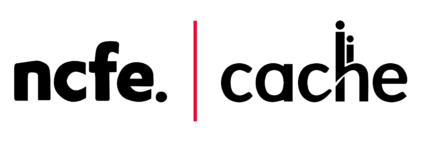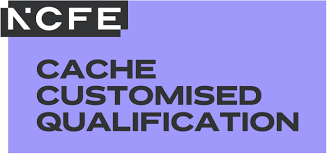Child Care in the Nanny Setting
Child Care in the Nanny Setting: A CACHE/NCFE Customized Qualification Level 3 Certificate
Child Care in the Nanny Setting has been accredited as a Customized Qualification and benchmarked for the qualification’s learning outcomes and assessment criteria at Level 3 Certification to demonstrate the difficulty and depth of study. The course consists of 14 mandatory units totaling 125 hours of qualification time. Each unit consists of course content, an assessment, and required submissions of evidence and the course includes a final exam. A workbook accompanies this course. On successful completion of the Customized Qualification, learners will receive a certificate of achievement from CACHE/NCFE.
This course aligns with the US Nanny Association’s National Standards and covers the Competency Goals, Subject Areas, and Functional Areas outlined by the CDA.
Course Prerequisites:
- Must be 18 years of age or older
- Must possess a high school diploma or GED
- Must have access to a computer and printer
- Must have a valid email address
- Must have access to the Internet
- English fluency
- CPR and First Aid Certification
Course Assessments:
- Examination conditions; written questions, online testing (80% Passing Score on Final Exam)
- Portfolio of Evidence; composed of completed units in workbook (100% Completion Score on Portfolio)
Course Scoring:
- Student must score at least an 80% on the Final Exam
- Student must submit completed Portfolio of Evidence
Retakes:
- Students can retake Unit Quizzes until they master the content. Final Exams cannot be retaken without reenrolling in the course.
Course Content
Learning Outcomes:
- The learner will know the important role a nanny plays in ensuring child safety.
- The learner will be able to minimize risk of injury to the children in her care.
- The learner will be able to prevent, plan, prepare for, and appropriately respond to emergencies.
Assessment Criteria:
- The learner can outline how to minimize hazards when providing in-home care.
- The learner can recommend how to create and maintain a safe environment for children.
- The learner can summarize what is needed to provide safety-focused care.
Learning Outcomes:
- The learner will be able to maintain a basic health and medication log.
- The learner will know the signs of common childhood illnesses.
- The learner will be able to apply strategies to minimize the spread of illness.
Assessment Criteria:
- The learner can describe how to conduct a basic daily health assessment.
- The learner can create and maintain a medication log.
- The learn can explain steps needed to minimize the spread of illness.
Learning Outcomes:
- The learner will understand the benefits of breastfeeding and the role of bottle feeding.
- The learner will understand the progression of foods through childhood.
- The learner will be able to foster healthy eating habits in children.
Assessment Criteria:
- The learner can identify the benefits of breastfeeding and the role of bottle feeding.
- The learner can plan a weekly nutritious and age-appropriate menu for children.
- The learner can explain the role of healthy eating habits and nutrition play in growth and development.
Learning Outcomes:
- The learner will know how to prepare and maintain emergency supplies.
- The learner will understand how to create emergency plans.
Assessment Criteria:
- The learner can suggest supplies needed for creating and maintaining an emergency kit.
- The learner can draft an emergency response plan of action.
Learning Outcomes:
- The learner will understand the progression of brain development.
- The learner will understand the expected developmental milestones during childhood.
- The learner will be able to provide care adjusted to the age and developmental stage of the child.
Assessment Criteria:
- The learner can describe the role brain development plays in development.
- The learner can assess if a child in their care is reaching the appropriate developmental milestones.
- The learner can adapt caregiving to the age and developmental stage of the child.
- The learner can plan age-appropriate activities that support physical development.
Learning Outcomes:
- The learner will understand the progression of cognitive development in the early years.
- The learner will be able to engage children in activities that supports cognitive development.
Assessment Criteria:
- The learner can discuss stages of cognitive development.
- The learner can plan age-appropriate activities that support cognitive development.
Learning Outcomes:
- The learner will understand how role-playing, the arts, music, and movement support the development of creativity in the early years.
- The learner will understand the nanny’s role in supporting creativity during the early years.
- The learner will be able to support creativity in the early years by providing age-appropriate experiences.
Assessment Criteria:
- The learner can discuss the nanny’s role in supporting creativity in the early years.
- The learner can plan age-appropriate activities that support creativity.
- The learner can suggest how to create an environment that facilitates creativity.
Learning Outcomes:
- The learner will understand the role temperaments play in development.
- The learner will understand how attachment and emotional regulation impact development.
- The learner will understand the stages and importance of play during the early years.
- The learner will understand how emotional intelligence impacts development.
Assessment Criteria:
- The learner can discuss the nanny’s role in play.
- The learner can apply strategies to help children regulate their emotions.
- The learner can provide age-appropriate child guidance with the child’s social and emotional development in mind.
Learning Outcomes:
- The learner can discuss the nanny’s role in language and literacy development.
- The learner will understand how language and literacy develops during the early years
- The learner will be able to foster language and literacy development
Assessment Criteria:
- The learner can plan activities that foster language and literacy development
- The learner can assess if a child is not meeting language and literacy milestones
Learning Outcomes:
- The learner will be able to create an environment that fosters learning.
- The learner will understand the role STEAM, STEM and Common Core play in learning.
- The learner will be able to plan age-appropriate activities that foster learning.
Assessment Criteria:
- The learner can plan activities that foster learning.
- The learner can create an environment that facilitates age-appropriate learning.
- The learner can adapt caregiving to a child’s learning level.
Learning Outcomes:
- The learner will understand how routines support health and well-being in children.
- The learner will understand how routines shift as children grow.
- The learner will be able to use strategies to facilitate smooth transitions.
Assessment Criteria:
- The learner can identify strategies to facilitate a smooth transition.
- The learner can develop an age-appropriate routine.
Learning Outcomes:
- The learner will understand the difference between discipline and punishment.
- The learner will understand the role the nanny plays in discipline.
- The learner will be able to guide behavior using different strategies.
Assessment Criteria:
- The learner can identify strategies for behavioral guidance.
- The learner can use an age-appropriate response to behavior.
- The learner can adjust the response to behavior based on the child’s age and stage of development.
Learning Outcomes:
- The learner will understand the unique situations nannies face while providing care in the family’s home.
- The learner will understand how family dynamics and trauma impact nannies and families.
- The learner will understand how children with specialized needs may need specialized care.
Assessment Criteria:
- The learner can discuss unique situations nannies may encounter in their place of work.
- The learner can explain how family dynamics impact her role in the family.
- The learner can adjust her caregiving to the specialized needs of the child.
- The leaner can apply strategies for helping children to cope with loss, trauma, or special circumstances.
Learning Outcomes:
- The learner will understand the role of a nanny.
- The learner will understand the responsibilities and best practices of being a household employee.
- The learner will be able to advocate for his or herself as a nanny.
Assessment Criteria:
- The learner can explain the role of a nanny and the duties, responsibilities, and guiding principles required to be successful.
- The learner can explain the responsibilities and best practices of being a household employee.
- The learner can develop and adhere to standards of practice and codes of conduct that align with accepted industry practices.


CACHE is a UK based organization that was established in 1945 by the Ministry of Health under the name of the National Nursery Examination Board (NNEB). The board set the syllabus for the first national examination which took place in 1947. In 1994, the NNEB merged with the Council for Early Years Awards to form CACHE. In 2001 they incorporated the National Association for Maternal and Child Welfare and in 2015 they became part of NCFE.
NCFE are an awarding organization recognized by the qualification regulators for England (Ofqual, Wales (Qualification Wales) and Northern Ireland (CCEA Regulation).
This qualification has been accredited as a Customized Qualification and we have benchmarked the qualification’s learning outcomes and assessment criteria at Level 3 Certificate using the national framework’s level descriptors to demonstrate the difficulty and depth of study. This is unregulated qualification and is not a nationally recognized qualification.
On completion of the Customized Qualification, learners will receive a certificate of achievement. The certificate is evidence of the knowledge and skills gained by completing the qualification. This qualification has been accredited by NCFE under the Customized Qualification and the certificate of achievement will be issued directly by NCFE.
